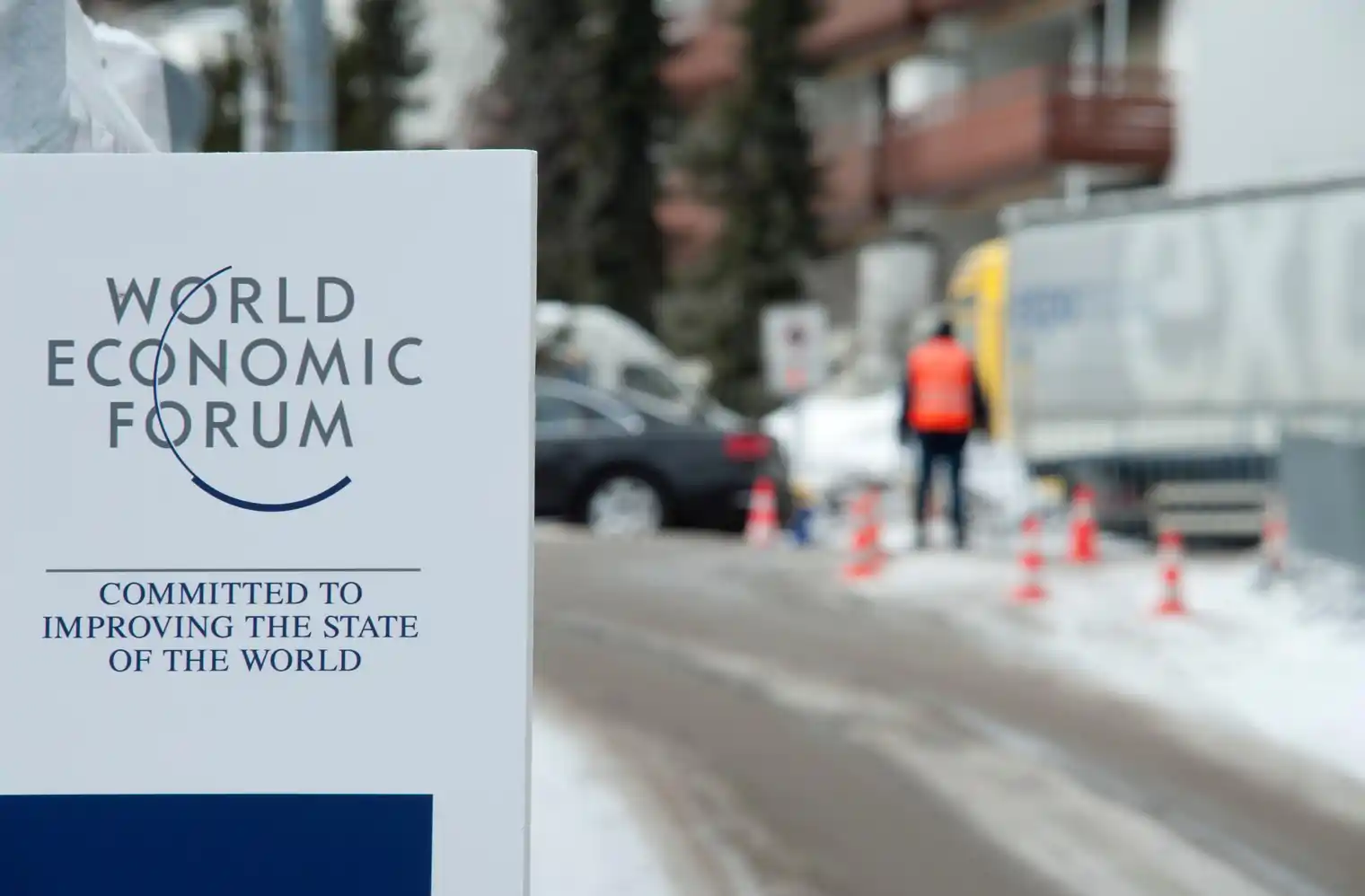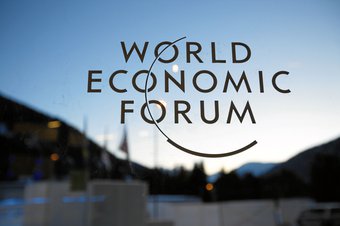It’s a corporate takeover of global governance that affects our food, our data and our vaccines
‘The Great Reset’ conspiracy theories don’t seem to want to die. The theories were triggered by the World Economic Forum’s (WEF) summit last year, which had the theme ‘The Great Reset’ and argued that the COVID crisis was an opportunity to address the burning issues facing the world. According to the BBC, the term ‘Great Reset’ has received more than eight million interactions on Facebook and has been shared almost two million times on Twitter since the WEF initiative was launched.
The set of conspiracy theories around the Great Reset are nebulous and hard to pin down, but piecing them together gives us something like this: the Great Reset is the global elite’s plan to instate a communist world order by abolishing private property while using COVID-19 to solve overpopulation and enslaving what remains of humanity with vaccines.
Intrigued by the palaver around last year’s summit, I decided to find out what the WEF’s Great Reset plan was really about. At the heart of conspiracy theories are supposed secret agendas and malicious intent. While these may be absent from the WEF’s Great Reset initiative, what I found was something almost as sinister hiding in plain sight. In fact, more sinister because it’s real and it’s happening now. And it involves things as fundamental as our food, our data and our vaccines.
The real Great Reset
The magic words are ‘stakeholder capitalism’, a concept that WEF chairman Klaus Schwab has been hammering for decades and which occupies pride of place in the WEF’s Great Reset plan from June 2020. The idea is that global capitalism should be transformed so that corporations no longer focus solely on serving shareholders but become custodians of society by creating value for customers, suppliers, employees, communities and other ‘stakeholders’. The way the WEF sees stakeholder capitalism being carried out is through a range of ‘multi-stakeholder partnerships’ bringing together the private sector, governments and civil society across all areas of global governance.
The idea of stakeholder capitalism and multi-stakeholder partnerships might sound warm and fuzzy, until we dig deeper and realise that this actually means giving corporations more power over society, and democratic institutions less.
The plan from which the Great Reset originated was called the Global Redesign Initiative. Drafted by the WEF after the 2008 economic crisis, the initiative contains a 600-page report on transforming global governance. In the WEF’s vision, “the government voice would be one among many, without always being the final arbiter.” Governments would be just one stakeholder in a multi-stakeholder model of global governance. Harris Gleckman, senior fellow at the University of Massachusetts, describes the report as “the most comprehensive proposal for re-designing global governance since the formulation of the United Nations during World War II.”
Multi-stakeholder partnerships are public-private partnerships on the global stage
Who are these other, non-governmental stakeholders? The WEF, best known for its annual meeting of high-net-worth individuals in Davos, Switzerland, describes itself as an international organization for public-private cooperation. WEF partners include some of the biggest companies in oil (Saudi Aramco, Shell, Chevron, BP), food (Unilever, The Coca-Cola Company, Nestlé), technology (Facebook, Google, Amazon, Microsoft, Apple) and pharmaceuticals (AstraZeneca, Pfizer, Moderna).
Instead of corporations serving many stakeholders, in the multi-stakeholder model of global governance, corporations are promoted to being official stakeholders in global decision-making, while governments are relegated to being one of many stakeholders. In practice, corporations become the main stakeholders, while governments take a backseat role, and civil society is mainly window dressing.
The multi-stakeholder ecosystem
Perhaps the most symbolic example of this shift is the controversial strategic partnership agreement the United Nations (UN) signed with the WEF in 2019. Harris Gleckman describes this as a move to turn the UN into a public-private partnership, creating a special place for corporations inside the UN.
The multi-stakeholder model is already being built. In recent years, an ever-expanding ecosystem of multi-stakeholder groups has spread across all sectors of the global governance system. There are now more than 45 global multi-stakeholder groups that set standards and establish guidelines and rules in a range of areas. According to Gleckman, these groups, which lack any democratic accountability, consist of private stakeholders (big corporations) who “recruit their friends in government, civil society and universities to join them in solving public problems”.
Multi-stakeholderism is the WEF’s update of multilateralism, which is the current system through which countries work together to achieve common goals. The multilateral system’s core institution is the UN. The multilateral system is often rightly accused of being ineffective, too bureaucratic and skewed towards the most powerful nations. But it is at least theoretically democratic because it brings together democratically elected leaders of countries to make decisions in the global arena. Instead of reforming the multilateral system to deepen democracy, the WEF’s vision of multi-stakeholder governance entails further removing democracy by sidelining governments and putting unelected ‘stakeholders’ – mainly corporations – in their place when it comes to global decision-making.
Put bluntly, multi-stakeholder partnerships are public-private partnerships on the global stage. And they have real-world implications for the way our food systems are organized, how big tech is governed and how our vaccines and medicines are distributed.
The future of food
In autumn 2021, the UN is set to host the World Summit on Food Systems (FSS) in Rome. This is necessary, given that 3.9 billion people – more than half of the world’s population – are currently battling hunger and malnutrition, even though there is enough food to feed the world. But this year’s summit differs significantly from past UN food summits, embracing ‘multi-stakeholder inclusivity’, in which the private sector has ‘an important role’. A concept note from 2019 showed that the WEF was set to be involved in organising the summit, though it is not now clear what the role of the WEF will be.
“Abandoning pesticides is not on the table. How come?” asks Sofia Monsalve of FIAN International, a human rights organisation focused on food and nutrition. “There is no discussion on land concentration or holding companies accountable for their environmental and labour abuses.” This fits into a bigger picture Monsalve sees of large corporations, which dominate the food sector, being reluctant to fix the production system. “They just want to come up with new investment opportunities.”
FIAN International together with 300 other organizations have expressed their concerns about the multi-stakeholder setup in an open letter to the secretary general of the UN, António Guterres. In a meeting with civil society groups who signed the letter, Amina Mohammed, the UN deputy secretary general, assured them that strong safeguards would prevent a corporate capture of the event, “by allowing only platforms or networks and no single corporation to the summit.”
But for Monsalve, “this only makes it worse. Now corporations can protect their interests and hide behind these platforms because it’s unclear who is in there.” Indeed, a corporate partner list is nowhere to be found on the official website. The FSS organisers were contacted for comment but had not responded by the time of publication.
The signatories to the letter fear that, with corporate involvement in the summit, food will continue to be treated “as a commodity and not as a human right”. If unchanged, industrial food systems will continue to have irreversible impacts on our health and the health of our planet.
Big tech governing big tech
Another landmark in the development of stakeholder capitalism can be found in the Big Tech sector. As a part of his 2020 Roadmap for Digital Cooperation the UN Secretary-General called for the formation of a new ‘strategic and empowered multi-stakeholder high-level body’. Again it’s not easy to find a list of stakeholders but after some digging a long list of ‘roundtable participants’ for the roadmap includes Facebook, Google, Microsoft and the WEF.
Although the functions laid out for this new body are quite vague, civil society organizations fear it will come down to Big Tech creating a global body to govern itself. This risks institutionalising these companies’ resistance against effective regulation both globally and nationally and increasing their power over governments and multilateral organizations. If the body comes to fruition, it could be a decisive victory in the ongoing war GAFAM (Google, Apple, Facebook, Amazon and Microsoft) is waging with governments over tax evasion, antitrust rules, and their ever-expanding power over society.
More than 170 civil society groups worldwide have signed another open letter to the secretary general of the UN – this time to prevent the digital governance body from forming. The secretary general was approached for comment but had not replied at the time of publication.
COVAX
Then there’s COVAX. The COVAX initiative aims to “accelerate the development and manufacture of COVID-19 vaccines, and to guarantee fair and equitable access for every country in the world”. That, again, sounds wonderful, especially given the staggering inequalities in vaccination levels between rich and developing countries.
But why is the World Health Organization (WHO), which is part of the UN, not calling the shots? “Countries together, through multilateral agencies like the WHO, were supposed to take decisions about global health issues, with maybe some technical support by others,” says Sulakshana Nandi from NGO People’s Health Movement, which has recently brought out a Policy Brief on COVAX.
They just want to come up with new investment opportunities
COVAX was set up as a multi-stakeholder group by two other multi-stakeholder groups, GAVI (the Vaccine Alliance) and CEPI (the Coalition for Epidemic Preparedness Innovations), in partnership with the WHO. Both GAVI and CEPI have strong ties with the World Economic Forum (which was one of the founders of CEPI) as well as the Bill and Melinda Gates Foundation, and both are also connected to companies like Pfizer, GlaxoSmithKline, AstraZeneca and Johnson & Johnson through manufacturer partnerships (GAVI) or as ‘supporters’ (CEPI). Even though COVAX is funded predominantly by governments, it is these corporate-centred coalitions that are overseeing its roll-out.
The contrast between the multi-stakeholder approach and a ‘classic’ multilateral one came to the surface when South Africa and India proposed the so-called TRIPS waiver at the end of last year. They requested a temporary lifting of intellectual property rules on all COVID-19 technologies in order to boost the manufacturing and distribution of vaccines and other essential medical products in mainly developing countries. WHO director general Tedros Adhanom Ghebreyesus said in a speech that he backed the proposal. “But GAVI, the Bill and Melinda Gates Foundation – even Bill Gates himself – and Big Pharma opposed this proposal very strongly,” said Nandi. “It’s more important for them to protect their interests and market mechanisms than to protect universal health or protect people from COVID.” The WHO was approached for comment but has not replied.
Again, there is a stark choice between a human rights-led approach carried out by the UN and a profit-led approach carried out by multistakeholder bodies representing the interests of corporations. In the case of COVAX – which is failing to meet its modest aim of vaccinating 20% of the populations of low- and middle-income countries – the former has won out.
Stake out stakeholder capitalism
So even if the WEF (or Bill Gates) is not responsible for the COVID pandemic, even if the vaccines are not laced with microchips to control our thoughts, something fishy really is going on in the realm of global governance. If you value your right to public health, to privacy, to access healthy food or to democratic representation, be wary of the words ‘stakeholder capitalism’ when they pop up at the next Davos summit.
The WEF was approached for comment on the issues raised in this article, but had not replied at the time of publication.


